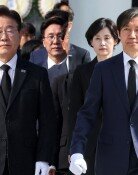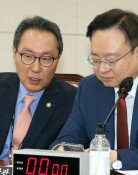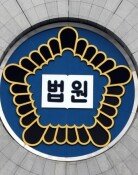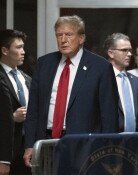China’s retaliation against THAAD will eventually hurt itself
China’s retaliation against THAAD will eventually hurt itself
Posted September. 09, 2017 07:21,
Updated September. 09, 2017 07:46
In a meeting with Trade, Industry and Energy Minister Paik Un-gyu on Friday, CEOs of South Korean electric vehicle battery manufacturers, including Samsung SDI, LG Chem and SK Innovation, told challenging situations amid China’s retaliatory measures against the deployment of THAAD (Thermal High Altitude Area Defense system) and called for an active response by the South Korean government. With the Chinese government providing large incentives to an electric car buyer, which amount to almost half the price of a vehicle, that’s not to mention that it has become extremely challenging to sell a vehicle in the absence of government incentives. China has provided incentives eight times this year, but vehicles installing battery manufactured by South Korean vendors have been exempted.
Amid the Chinese state-run media outlets’ bashing of South Korea for its deployment of THAAD to defend 50 million South Koreans and its assets against North Korea’s nuclear provocations, for example, saying, “THAAD is no more than a malignant tumor,” it seems that China’s attack on South Korea has just set off. “BAIC Motor Corp. considers ending its joint venture deal with Hyundai Motor and has already asked its South Korean counterpart to switch suppliers from South Korean partners to local Chinese companies,” the Global Times reported on Thursday. Though Hyundai Motor denied it, it seems suspicious that the Chinese government is trying to undermine Hyundai Motor by borrowing its state-run mouthpiece amid conflicts over THAAD. In the meantime, Korea's largest retailer E-Mart plans an exit after its 20-year business in China, and South Korean confectionery company Orion’s sales plunged 42 percent. Samsung and LG should not let down their guards in the memory semiconductor and display markets with a headwind looming.
Seemingly irrational behaviors by China undermine the basic principle of diplomatic relations between South Korea and China, which was built upon ideological differences, that politics and economy are separated. It will nullify the current strategic partnership between two countries and threatens a new Cold War era. Any heinous attempt to correlate security or political issues with economy to distress financial entities should be condemned for severe destruction of global trade ethics. Furthermore, Chinese President Xi Jinping cannot say, “China will lead free trade.” If China’s reputation is damaged and China is branded as a country that cannot be trusted, it will be a painful bow to China, too.
South Korea must come up with a pan-ministerial task force consisting of the Presidential Office, the Ministry of Trade, Industry and Energy and the Ministry of Foreign Affairs and make more efforts. South Korea must employ stronger measures to make China’s belligerent and combative diplomatic actions widely known or it can bring the case to the World Trade Organization. The trade ministry should review if China abides by the FTA agreement between South Korea and China and report all damages made to South Korea by China in a meeting to renegotiate the free trade deal with the U.S. It has been estimated that the economic loss from China’s retaliatory measures would amount to 7.5 billion U.S. dollars. All the rhetoric about fostering more jobs and growing the economy will only be saying empty prayer if business is not salvaged.
Headline News
- Israel prepares for retaliation against Iran
- Samsung reclaims top spot, surpassing Apple in smartphone market
- 77% of Koreans in 20s and 30s are 'Kangaroo Tribe' due to job crisis
- KBO referees embroiled in controversy over ABS decision concealment
- Inflation, oil price surge put double shock on global economy







